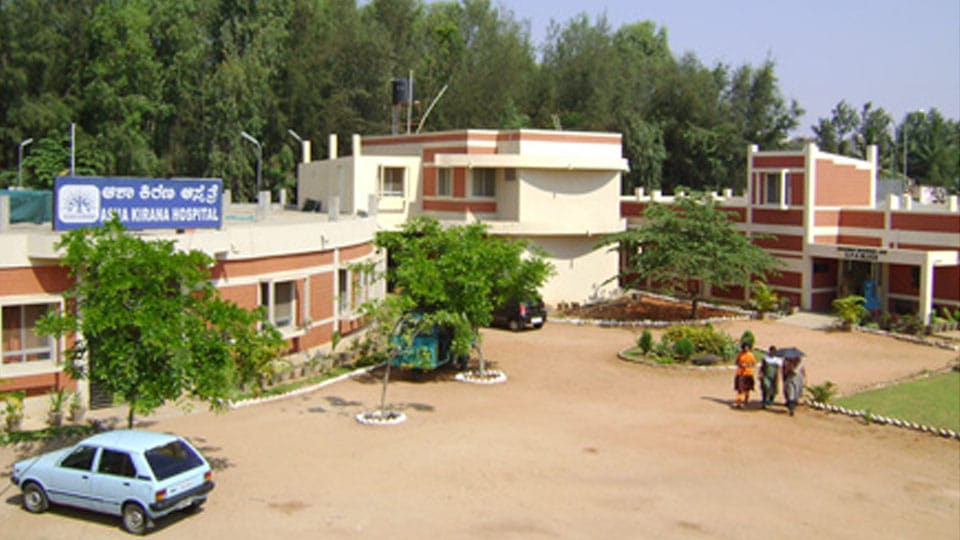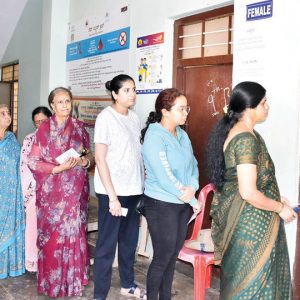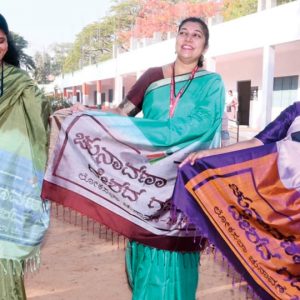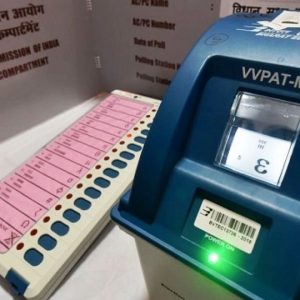Reflect, Re-commit, Re-energise, Re-engage
Today, June 5, 2021 happens to be the 40th year of the first diagnosed HIV case in entire world. On this day, we want the world to look back into the epidemic, to reflect, re-commit, re-energise and re-engage, says Dr. S.N. Mothi, Chairman & Founder Trustee, Asha Kirana Charitable Trust Hospital, Mysuru
By Dr. S.N. Mothi
“No one is safe until everyone is safe…” This slogan is often heard during the ongoing COVID-19 pandemic, which indeed is an echo of so many years of advocacy in the global scenario of HIV/ AIDS. This is the most appropriate time that we must learn from the challenges and responses of one pandemic and the other.
Today, June 5, 2021, marks 40 years since Los Angeles Physician Dr. Michael Gottlieb and colleagues published the first medical account of 5 cases of Pneumocystis Carnii Pneumonia which eventually became known as AIDS. Historically in 1959 the first known case of HIV in a human occurred in a man who died in Congo, which later confirmed as HIV infection (from his preserved blood samples).
HIV/AIDS has claimed more than 32.7 million lives, dwarfing the toll of the current COVID-19 pandemic. Yet, it is also a story of hope and heroes, of activism and ingenuity that spurred one of the most extraordinary scientific achievements of the 20th century. The development of antiviral drug combinations turned what had been a death sentence into a manageable chronic disease for millions and launched efforts to make these expensive medications available at low cost to the developing world. Today more than 26 million people are accessing antiretroviral therapy.
WHO defines ‘key populations’ as people in populations who are considered at increased HIV risk in all countries and regions. Key populations include: men who have sex with men; people who inject drugs; people in prisons and other closed settings; sex workers and their clients and transgender people. In Indian context, teenage labourers, migrant laborers and their spouse are also regarded ‘key population.’
Key population groups and their sexual partners accounted for over 62 percent of all new HIV infections globally among the age group of 15-49 years in 2019. Prioritising key populations in the HIV response with appropriate interventions would have the biggest impact on the epidemic and reduce new infections.
Current Indian scenario
In 2019 at the national level, there were an estimated 23.49 lakh people living with HIV (PLHIV), with an adult (15-49 years) HIV prevalence of 0.22 percent.
Maharashtra had the highest estimated number of PLHIV (3.96 lakh), followed by Andhra Pradesh (3.14 lakh), Karnataka (2.69 lakh), Uttar Pradesh (1.61 lakh), Telangana (1.58 lakh), Tamil Nadu (1.55 lakh), Bihar (1.34 lakh) and Gujarat (1.04 lakh). Together, these eight States constituted 72 percent of the total PLHIV estimates in the country.
Nationally, the annual new HIV infections has decreased by 37 percent since 2010. The decline in annual new HIV infections has been noted in all States/UTs except for Tripura, Arunachal Pradesh, Chhattisgarh and Chandigarh. The highest decline has been noted in Karnataka (75 percent), followed by Himachal Pradesh (74 percent) and Andhra Pradesh (65 percent).
“Unheard voices and untold stories of resilience, resolve and courage…”
Rajappa (name changed), 35 years, an autorickshaw driver, was depressed after knowing he is HIV +, he survived a suicidal attempt …was counselled, treated and is on follow up. He turned a Good Samaritan and commutes pregnant women and sick people to hospitals free of cost.
Anand (name changed),19 years, got HIV due to Mother- to-Child transmission, did not accuse his mother, was selling tea and coffee to vegetable vendors to support his sister’s education and mother’s medicines.
One of our earliest patients Raghu (name changed), 23 years, from a well to do family, refused to buy those expensive Anti Retroviral medicines… when asked ‘Why Raghu, you can afford to buy these medicines which many cannot…,’ he replied ‘I have saved a lakh of rupees towards Asha Kirana Hospital building and don’t want to spend for my medicines.’ Raghu was counselled to get himself treated first and help later. He is a successful businessman and a friend of Asha Kirana even now.
Gauri (name changed), HIV + peer counselor in Asha Kirana, battled her husband’s death due to AIDS but she never gave up. Gauri is a cancer survivor who is recovering from COVID-19 and waiting to resume work. A devoted and sincere counsellor.
Glimpses of Asha Kirana milestones since 1997
• Free voluntary counselling, testing and walk in clinic in Mysuru region – 1997
• MOU with CII-Mysuru to create awareness on HIV/AIDS in the industries 1998-2004.
• Outreach initiative to create awareness on HIV/AIDS in schools, colleges, villages and urban slums
• Awareness on HIV/AIDS and ‘safe blade initiative’ in the Mysuru Prison 1998 – 2000
• Roll out of Free Anti Retroviral medicines for 20 children – 2002
• Not for profit 30-bed standalone hospital providing comprehensive care for people living with HIV/AIDS since 2004
• Free ART(Anti-Retroviral Therapy) Centre as Public Private Partnership (PPP) model with the support of NACO – 2010
• Hosted national level conference on HIV/AIDS update year 2009, 2014 – 2020
• Putta Hejje an Early Intervention Programme for children with developmental delay was started under the leadership of Sashikala Ramnath – 2018
• Asha Kirana research centre received DSIR certification – 2019
• ICMR funded research – 2020
• Bringing our learning from HIV/AIDS pandemic, Asha Kirana stepped up to provide COVID Care during the first wave – 2020
• Launched a ‘Free Vaccine’ initiative in partnership with PMD Trust Prakash Jewelers, Srirampet, Mysuru March – April 2021
• CII, MMC&RI, Gopala Gowda Hospital and Asha Kirana Hospital jointly launched ICU facility in Princess Krishnajammanni Super Speciality Hospital with the support of District Administration.
Lessons from HIV/AIDS response to guide COVID-19 crisis
• The focus on COVID-19 pandemic must be to address issues of anxiety, fear and stigma by creating a culture of solidarity and kindness.
• Provide access to testing and correct information and guidance without further aggravating their anxiety and fear.
• Fear of hospitalisation leads to fear of disclosure and reporting late during illness hence must be approached with appropriate counselling. Inaccessibility of family and friends during their dying moments is a frequent concern expressed. These issues must be handled with utmost kindness maintaining ethics of care.
• Participation of various philanthropic individuals and organisations will strengthen the feeling of trust, confidence and faith to make a meaningful difference in such adversities.
• Appropriate steps must be taken to reduce stigma and discrimination faced against infected people, affected families and neighbourhoods. Safety, protection and insurance cover for frontline warriors especially health care workers is an important step to ensure their fearless participation in providing treatment, care and support.
Way forward
• In the process of enhancing investments during this COVID crisis, Governments must ensure the progress made towards ending the AIDS global epidemic by 2030 are NOT reversed through the diversion of resources.
• Winnie Byanyima, Executive Director, UNAIDS : Ending AIDS means closing gaps and ensuring that no one is left behind. The HIV response is fundamentally about inequality — to end AIDS, we must end inequality. If over the next five years we meet these new targets, end inequalities in HIV treatment and HIV prevention and reduce the stigma and discrimination that holds back the HIV response, the world will be well on its way to ending AIDS by 2030.
[Source: UNAIDS, WHO, NACO]








Recent Comments